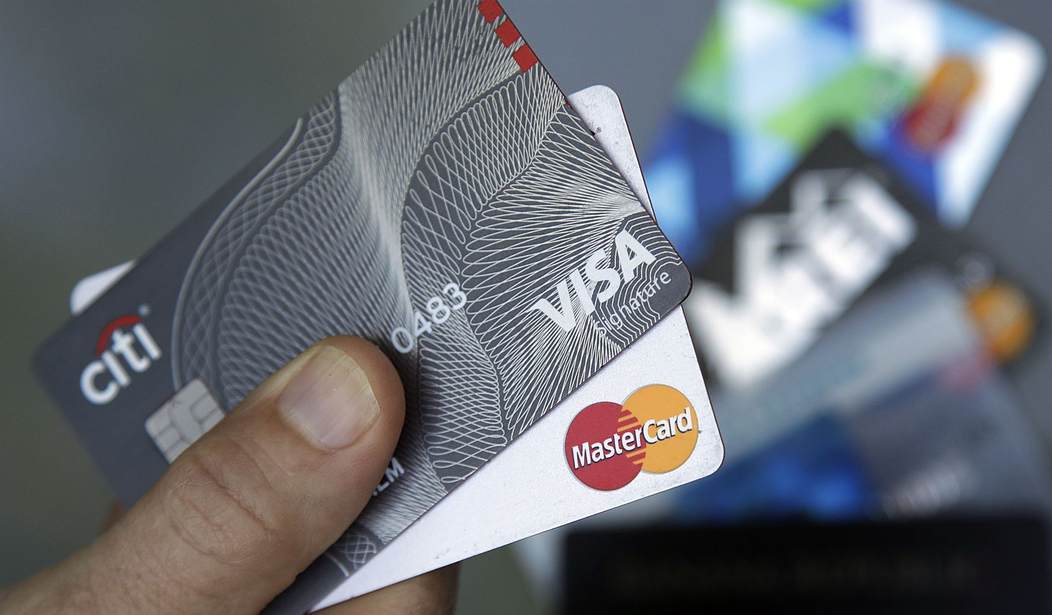If you haven’t had a chance to read our new contributor Ryan Petty’s take on the gun control end game when it comes to credit cards and gun purchases, be sure to check it out. Ryan’s spot on in his analysis, pointing out that “while developing a private registry and reporting suspicious purchases may be the currently acknowledged aims of this move to re-categorize firearms merchants, it is not likely the only objective of gun control activists.”
The other objective, according to Petty, is to pressure these financial institutions to simply stop doing business with the firearms industry entirely… something that the credit card companies themselves probably aren’t eager to go along with. What about developing additional codes that would allow for specific purchases to be tracked, however? So far we haven’t heard from companies like Visa, MasterCard, or American Express about just how far they’re willing to go to aid the gun control lobby in its efforts, but more than 100 Republicans in the House are asking that question and demanding answers.
Rep. Elise Stefanik, R-N.Y., along with 100 other Republicans sent letters to the CEOs of Mastercard, American Express and Visa pressuring them about their reported support for creating individual codes identifying firearm purchases. The members argue the plan opens a backdoor to an unofficial gun registry in the country.
House members are concerned about a move by the Internal Organization for Standardization creating a Merchant Category Code (MCC) that would identify when someone uses a credit card to purchase a firearm.
The move comes after New York State Attorney General Letitia James said that “credit card companies must now take the next step and flag suspicious transactions on gun and ammunition sales,” earlier this month.
“Of course, there is no accepted, consistent, scientific, or legitimate way to determine from this date what is and what is not a ‘suspicious’ purchase,” the House members wrote. “A gun control advocate could view any desire to own or obtain a firearm as per se suspicious. Instead, this is a transparent attempt to chill the exercise of constitutionally protected rights and to circumvent existing legal restrictions on the creation of firearm registries by the government.”
Neither side of the gun control debate is going to be satisfied with the move by these companies to adopt a new MCC for purchases at gun stores. In fact, anti-gun activists are already calling the move a “first step” while demanding the credit card companies drill down even deeper and identify specific purchases made at gun stores.
As the GOP House members point out, however, even if the credit card companies have access to that kind of granular information how do they determine whether a particular purchase is “suspicious”? Is buying more than one firearm a month evidence that someone is plotting a crime? Of course not. What about someone buying a firearm soon after they turn 18 (or 21, in the case of a handgun)? Nope.
The fact is that the vast majority of gun sales in this country are to people who will never be the perpetrator of a firearm-involved crime, and trying to determine whether or not a sale is “suspicious” based solely on credit card information is a fool’s errand. Of course, just because it’s a bad idea doesn’t mean these credit card companies won’t once again bend to the pressure campaign against them, so it’s good to see so many Republicans in the House apply some pressure of their own towards companies like Visa and MasterCard to stand up to the authoritarian demands of the gun control lobby.









Join the conversation as a VIP Member